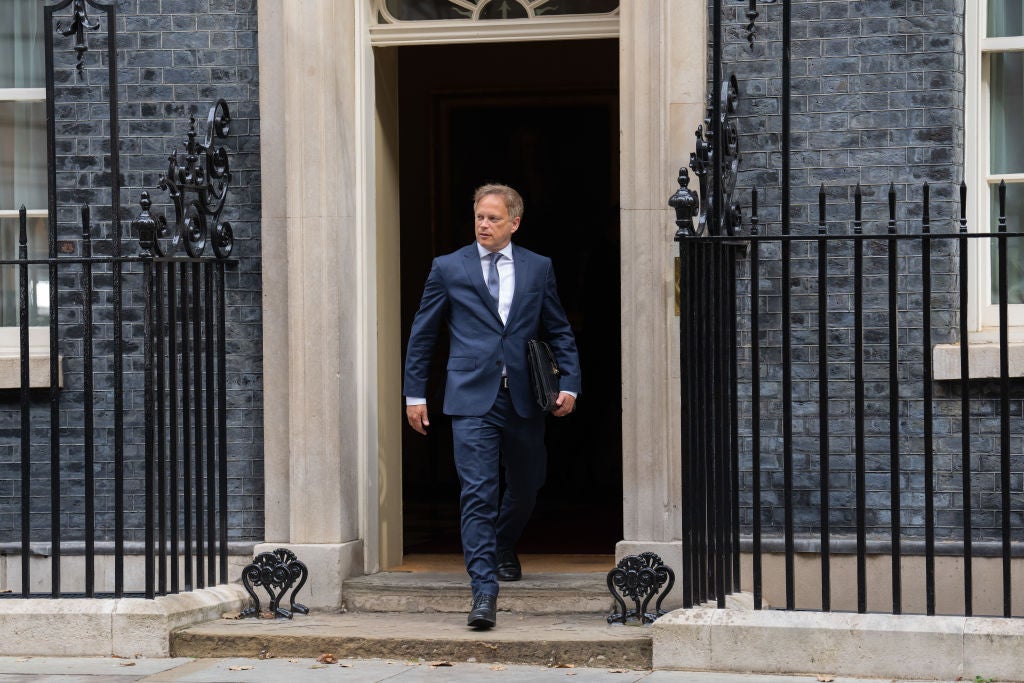
UK Defence Secretary Grant Shapps has said he, military leaders and Ukrainian President Volodymyr Zelensky discussed deploying British troops in Ukraine to lead a training programme during talks in Kyiv last week.
The UK and Western allies have so far withheld any military presence in Ukraine to reduce the risk of direct conflict with Moscow.
“I was talking today about eventually getting the training brought closer and actually into Ukraine as well,” Shapps told The Telegraph. Hours after the interview, UK Prime Minister Rishi Sunak said the deployment of British soldiers “might well be possible one day in the future … but that’s something for the long term, not the here and now”.
Shapps’ comments came after a briefing with General Sir Patrick Sanders and other senior military personnel at Salisbury Plain.
Russian officials have countered with threats. Former Russian President and Deputy Chair of the Security Council Dmitry Medvedev said the move would “turn the British military instructors into our Armed Forces’ legal targets”, warning they would be “ruthlessly eliminated” on X, formerly Twitter.
Will UK defence manufacturers follow BAE into Ukraine?
Since the start of 2022, more than 23,500 Ukrainian soldiers have received combat training at army bases across the UK including the Salisbury Plain as part of Operation Interflex.
The UK government committed to training another 20,000 Ukrainian army recruits on 11 August. It is part of a broader support package for Kyiv that includes a pledge of £2.3bn ($2.8bn) of anti-tank weapons and rocket systems.
Shapps also called on more UK defence companies to set up factories in Ukraine.
On 31 August, BAE Systems announced the opening a Ukraine plant to facilitate production of 105mm Light Guns – the same day as Shapps took over as Defence Secretary from predecessor Ben Wallace.
The appointment marks Shapps’ fifth cabinet post in a year, and it received criticism from MPs and former military figures for his lack of relevant experience.
“Particularly in the west of the country, I think the opportunity now is to bring more things ‘in country’ – not just training, but also we’re seeing BAE, for example, move into manufacturing in country,” Shapps said. “I’m keen to see other British companies do their bit as well by doing the same thing.”
Western unease over Slovakia and Eastern Europe
Shapps’ pledges of support for Ukraine come amid uncertainty over US aid for Kyiv’s war effort. The White House has promised assistance will return following an emergency bill which excluded aid entirely to prevent a government shutdown.
The EU, meanwhile, expressed support for Ukraine during a meeting in Kyiv on October 2, the bloc’s first in a non-member country. It also proceeded pro-Russia politician Robert Fico regaining office in Slovakia, which borders Ukraine’s western flank.
British military presence has also ramped up elsewhere in Eastern Europe, with Shapps ordering forces to northern Kosovo on 1 October. The deployment was requested by Nato’s Supreme Allied Commander for Europe following a deadly attack in Banjska, which borders Serbia.
The UK Defence Secretary also raised the possibility of the UK Royal Navy helping to defend ships departing Ukrainian ports in the Black Sea. On 24 September, the first large grain ship bypassed Russia’s naval blockade by hugging the Black Sea coastline of Nato member states Romania and Bulgaria.
The breakthrough came amid heightened conflict in the region. Ukraine’s Air Force blew up Russia’s Black Sea Fleet headquarters in Crimea with a missile strike on 22 September.
Our signals coverage is powered by GlobalData’s Thematic Engine, which tags millions of data items across six alternative datasets — patents, jobs, deals, company filings, social media mentions and news — to themes, sectors and companies. These signals enhance our predictive capabilities, helping us to identify the most disruptive threats across each of the sectors we cover and the companies best placed to succeed.




